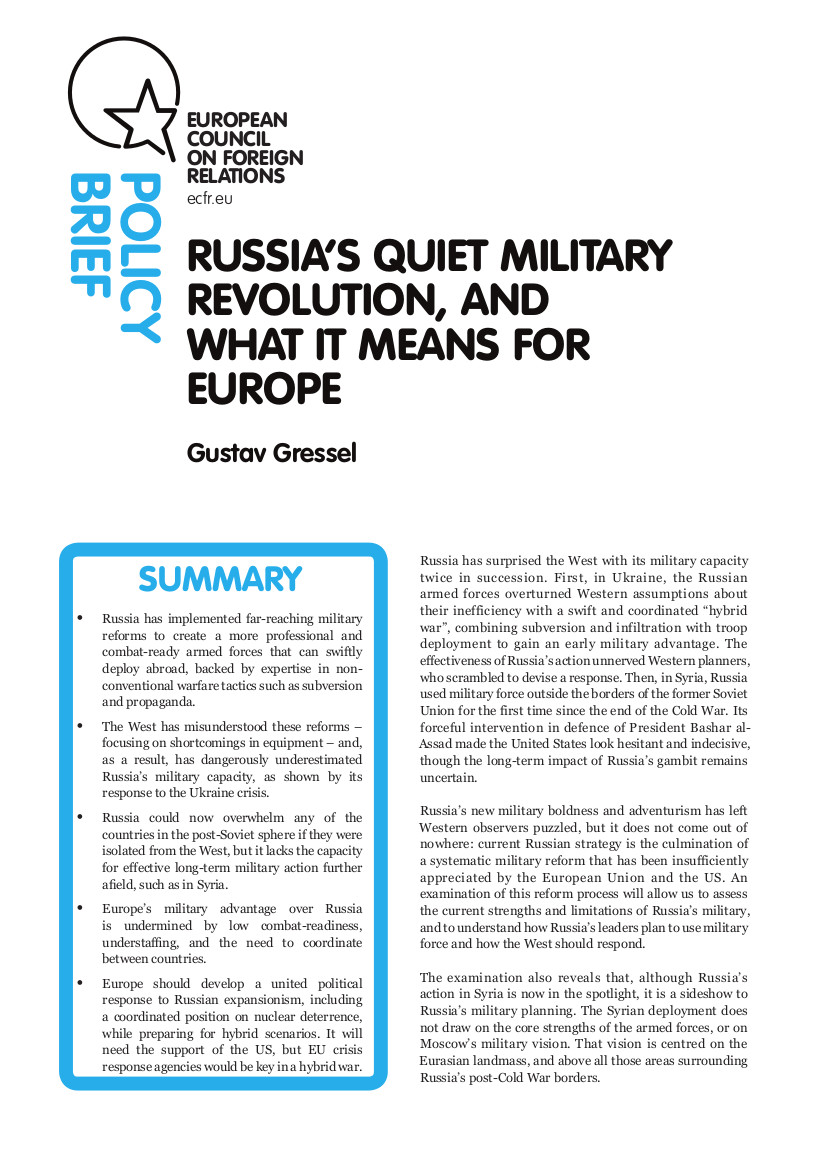Russia’s quiet military revolution and what it means for Europe
Putin’s expansionist policy in Russia’s neighbourhood is backed up by a poised and professional military
Putin’s expansionist policy in Russia’s neighbourhood is backed up by a poised and professional military thanks to Russia’s most significant military reforms since the 1930s.
ECFR Visiting Fellow Gustav Gressel, asserts that reforms initiated in response to the blundering invasion of Georgia in 2008, have left Russia with a military that would make short work of any of its neighbours, were they left isolated by their Western allies, though he calls into question Russia’s capacity in Syria.
Gressel argues that many Western policy makers, have been lulled into a false sense of security by focussing primarily on the military hardware component of Russian military modernisation. Rather, Gressel focusses on administrative and training reforms that have trimmed the size of Russia’s top heavy armed forces, producing a group of smaller, more mobile, and more versatile military units.
And Russian military planning, including war games incorporating limited use of tactical nuclear weapons, shows that this is firmly aimed at EU and NATO members. A succession of war games have simulated Russian attacks on Poland, the Baltic states and Finland, with one – ‘Zapad 2013’ – postulating a Russian military response to unspecified Baltic ‘terrorists’ taking control of Belarus.
While Gressel argues that a major military escalation of this nature is not imminent, he also claims that it cannot be ruled out. Europe should, therefore, be prepared to handle hybrid scenarios that combine conventional and non-conventional warfare. He contends that its response should incorporate procedures from both stabilisation or crisis intervention operations as well as traditional defence, because the geographic reality and strategic uncertainty demands rapid deployment as well as military strength. Europe also needs to rebuild its administrative and logistical apparatus to support major military operations in eastern Europe, that has been degraded since 1989.
However, referring to the recent Russian military engagement in support of President Assad in Syria, Gressel casts doubt on the ability of the Russian military to engage in this kind of expeditionary warfare. He cites Russian reliance on land-based fire support and lack of surveillance capacity to conduct extensive overseas operations.
The European Council on Foreign Relations does not take collective positions. ECFR publications only represent the views of their individual authors.



